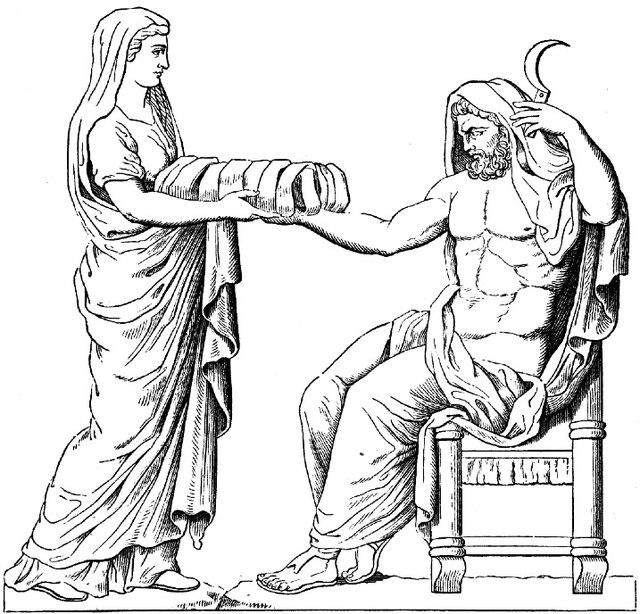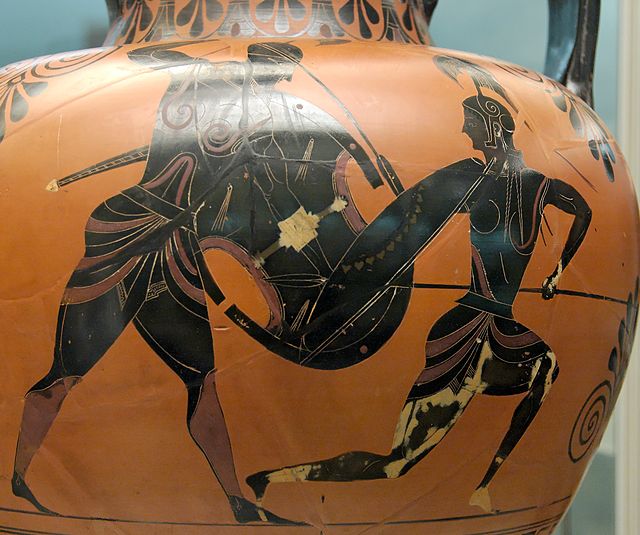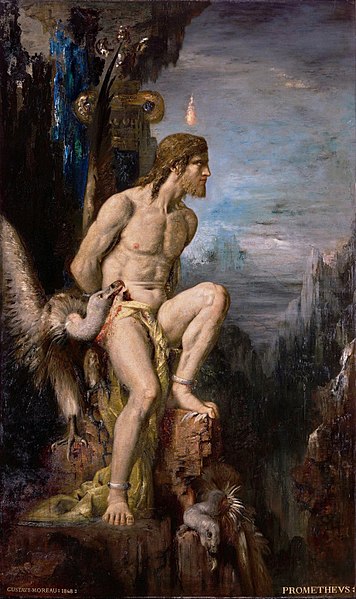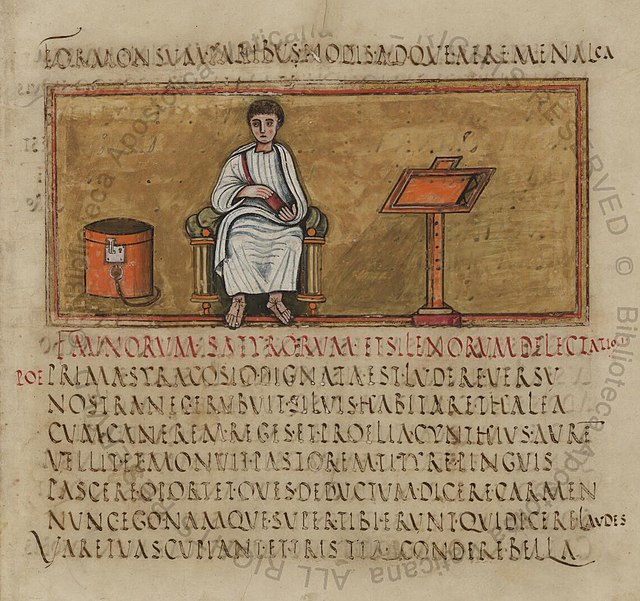Rhea or Rheia is a mother goddess in ancient Greek religion and mythology, the Titan daughter of the earth goddess Gaia and the sky god Uranus, himself a son of Gaia. She is the older sister of Cronus, who was also her consort, and the mother of the five eldest Olympian gods and Hades, king of the underworld.
Rhea presenting Cronus with the stone wrapped in swaddling bands
Rhea giving the rock to Cronus, 19th-century painted frieze by Karl Friedrich Schinkel
Rhea rides on a lion, Pergamon Altar, Pergamon Museum, Berlin
Greek mythology is the body of myths originally told by the ancient Greeks, and a genre of ancient Greek folklore, today absorbed alongside Roman mythology into the broader designation of classical mythology. These stories concern the ancient Greek religion's view of the origin and nature of the world; the lives and activities of deities, heroes, and mythological creatures; and the origins and significance of the ancient Greeks' cult and ritual practices. Modern scholars study the myths to shed light on the religious and political institutions of ancient Greece, and to better understand the nature of myth-making itself.
Achilles and Penthesileia by Exekias, c. 540 BC, British Museum, London
Prometheus (1868 by Gustave Moreau). The myth of Prometheus first was attested by Hesiod and then constituted the basis for a tragic trilogy of plays, possibly by Aeschylus, consisting of Prometheus Bound, Prometheus Unbound, and Prometheus Pyrphoros.
The Roman poet Virgil, here depicted in the fifth-century manuscript, the Vergilius Romanus, preserved details of Greek mythology in many of his writings.
Phaedra with an attendant, probably her nurse, a fresco from Pompeii, c. 60 – c. 20 BC







